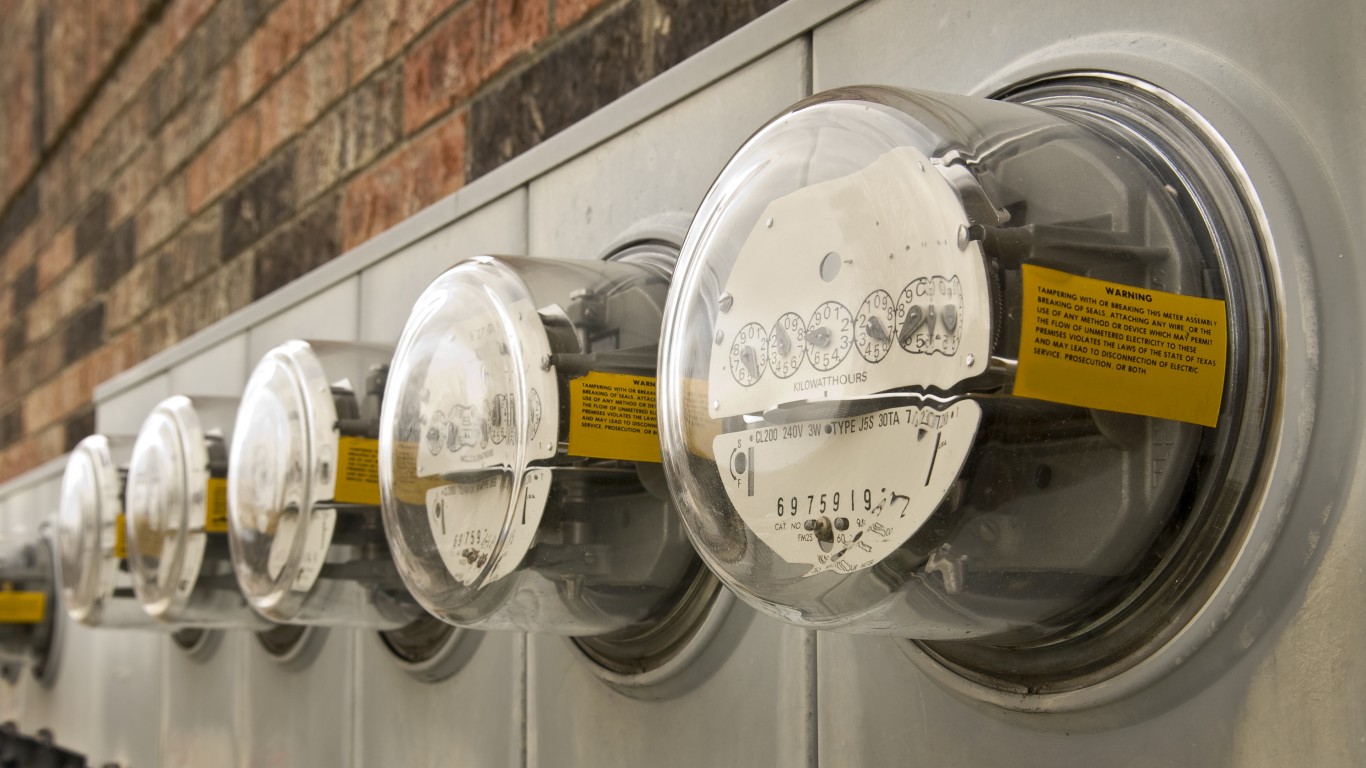

Federal Reserve Chair Jay Powell all but said it last week, and it’s probably an undeniable truth because the current realities are not going away anytime soon. Interest rates are expected to stay at today’s historically low levels for years. Some think it could be as late as 2024 before the Fed can safely start to raise rates again.
In addition, the possibility of negative real rates is starting to crop up again. In other words, investors wanting to purchase government-issued Treasury debt actually would have to pay an interest charge to own the risk-free securities.
[in-text-ad]
One sector that rallied big-time a few years back as rates took the initial plunge in 2011 and 2012 was utilities. Scoffed at by many as only good for orphans and widows, the sector’s luster faded as rates reversed in 2014. After turning down some later that year, rates essentially went sideways until last year, when they started to plunge again.
With income investors searching high and low for safe yields, and bank certificates of deposit offering pathetic rates for five years (the best we could find was a 1.50% at Delta Community Credit Union), it makes sense for income-starved investors to look again at the utility sector.
We screened the BofA Securities utility research universe and found four top stocks that come with dependable and safe dividends, as well as the potential for some capital gains. While all four are rated Buy at the firm, it is important to remember that no single analyst report should be used as a sole basis for any buying or selling decision.
Consolidated Edison
This old-school stock offers investors the stability and track record many seek now. Consolidated Edison Inc. (NYSE: ED) offers electric services to approximately 3.5 million customers in New York City and Westchester County; gas to around 1.1 million customers in Manhattan, the Bronx and parts of Queens and Westchester County; and steam to about 1,700 customers in parts of Manhattan.
The company owns 62 area distribution substations and various distribution facilities; 39 transmission substations and 62 area stations; electric generation facilities with an aggregate capacity of 724 megawatts that run on gas and fuel oil; 4,348 miles of mains and 369,791 service lines for natural gas distribution; and one steam-electric generating station and five steam-only generating stations.
The company operates 572 circuit miles of transmission lines; 14 transmission substations; 86,794 in-service line transformers; 3,994 pole miles of overhead distribution lines; and 1,889 miles of underground distribution lines, as well as 1,867 miles of mains and 105,482 service lines for natural gas distribution. In addition, it is involved in the sale and related hedging of electricity to retail customers, and the provision of energy-related products and services to wholesale and retail customers.
Shareholders receive a 4.11% dividend. The BofA Securities price target for the shares is $78, and the Wall Street consensus target is $77.33. Consolidated Edison stock closed Friday’s trading at $73.88 per share.
DTE Energy
With the potential for a very cold winter on tap, this company may look to extending gains into 2021. DTE Energy Inc. (NYSE: DTE) is the largest utility in Michigan. Its largest operating units are DTE Electric, an electric utility serving 2.2 million customers in southeastern Michigan, and DTE Gas, a natural gas utility serving 1.3 million customers in the state. DTE Energy also has non-utility energy businesses that focus on power and industrial projects, natural gas midstream and energy trading.
The company’s Gas segment purchases, stores, transports, distributes and sells natural gas to residential, commercial and industrial customers throughout Michigan, and it sells storage and transportation capacity. This segment has approximately 19,800 miles of distribution mains, 1,305,000 service pipelines and 1,273,000 active meters, as well as approximately 2,000 miles of transmission pipelines.
Thank you for reading! Have some feedback for us?
Contact the 24/7 Wall St. editorial team.
 24/7 Wall St.
24/7 Wall St.


